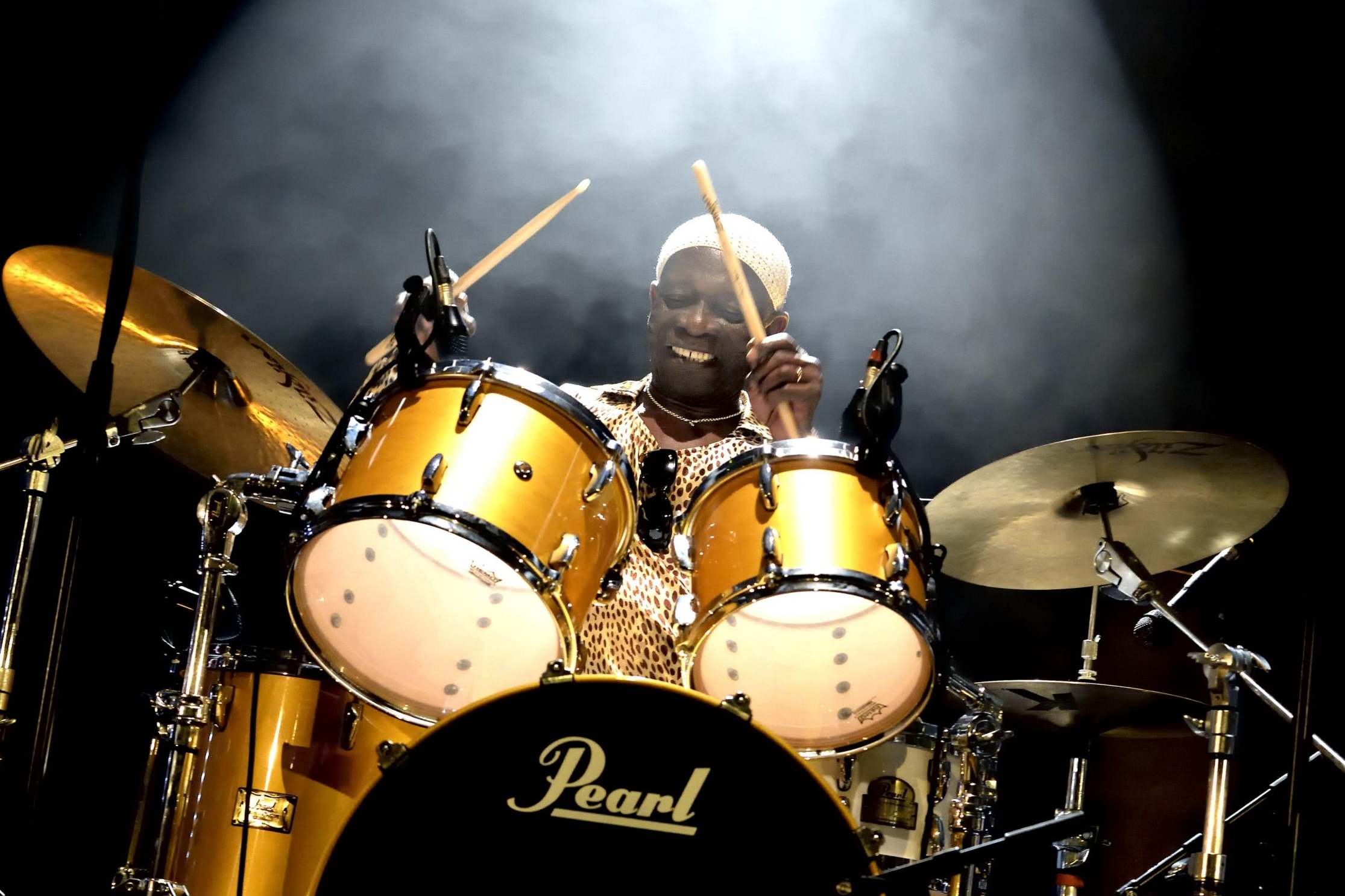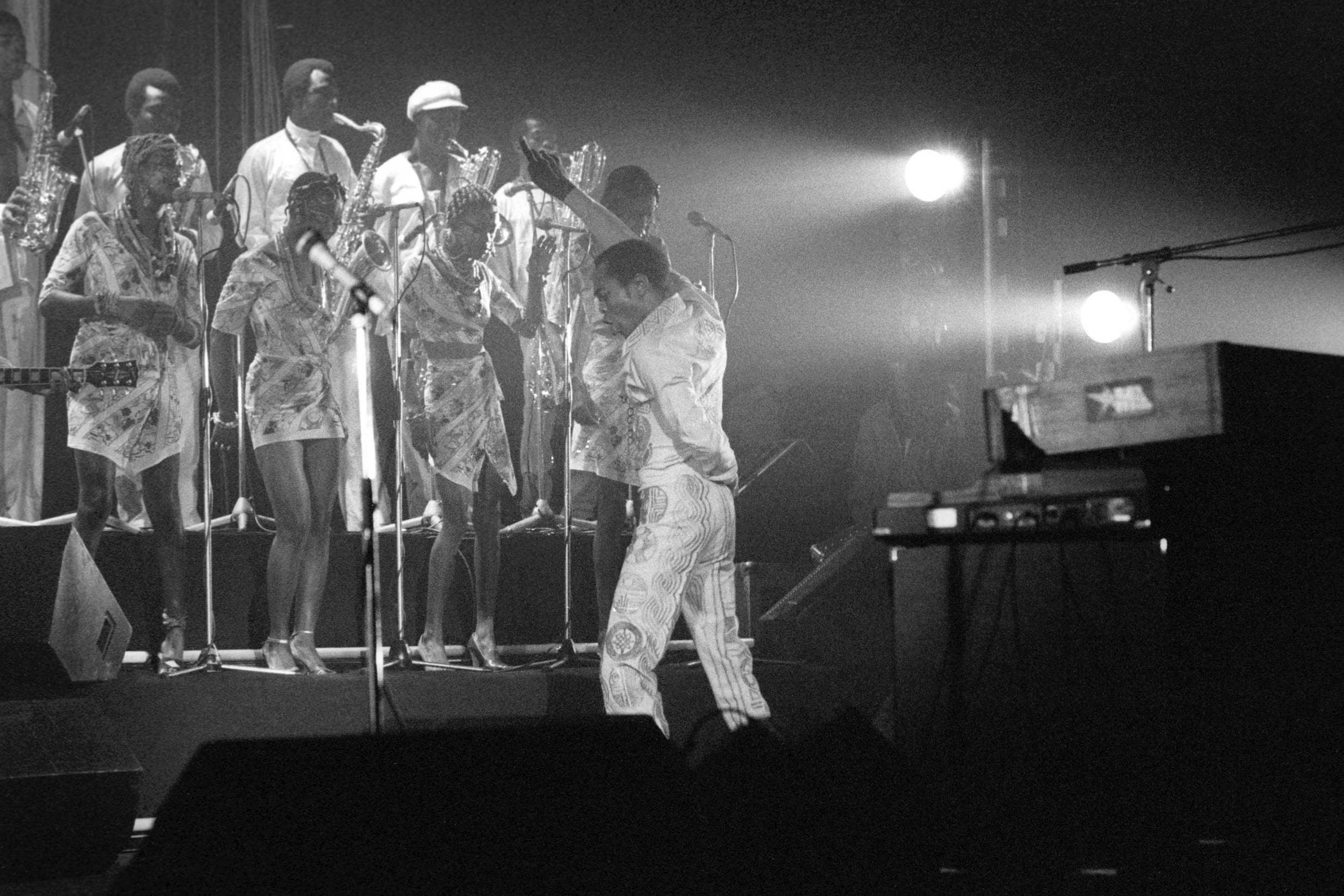Tony Allen: Drummer and Afrobeat pioneer whose fusion of styles proved hugely influential
His work with Fela Kuti found an international audience and his playing was widely admired

Your support helps us to tell the story
From reproductive rights to climate change to Big Tech, The Independent is on the ground when the story is developing. Whether it's investigating the financials of Elon Musk's pro-Trump PAC or producing our latest documentary, 'The A Word', which shines a light on the American women fighting for reproductive rights, we know how important it is to parse out the facts from the messaging.
At such a critical moment in US history, we need reporters on the ground. Your donation allows us to keep sending journalists to speak to both sides of the story.
The Independent is trusted by Americans across the entire political spectrum. And unlike many other quality news outlets, we choose not to lock Americans out of our reporting and analysis with paywalls. We believe quality journalism should be available to everyone, paid for by those who can afford it.
Your support makes all the difference.Tony Allen, who has died aged 79, was the Nigerian drummer who, together with musician and activist Fela Kuti, pioneered Afrobeat. Kuti, who coined the term, once said that “without Tony Allen, there would be no Afrobeat”. Brian Eno went further, calling him “perhaps the greatest drummer who has ever lived”.
Combining Nigerian and Ghanaian syncopated rhythms with western jazz and funk, the genre took off in the late Sixties and early Seventies in its home countries. It soon caught on in America, following a tour by Kuti and Allen in 1969, and has become hugely influential across the world since then.
Allen was born in 1940, the son of a Christian Ghanaian mother and a Nigerian father. He started his career as an engineer working for the Nigerian Broadcasting Corporation, aged 18.
His musical influences came from the Juju popular music enjoyed by his father, from American jazz and especially from the Ghanaian drummer Guy Warren, who had created his own personal Afro-jazz fusion. Allen’s musical career began as a percussionist with Sir Victor Olaiya and the Cool Cats. When the Cool Cats drummer left, Allen took over, adding his own distinctive touch to Olaiya’s “highlife” musical style.
It was in 1964 that Allen met Fela Kuti, who had recently returned from studying music in London and was now working as a broadcaster for NBC. Allen recalled: “Being a musician, he really wanted to play jazz when he arrived in the country. Instead of him presenting the records, he decided to form a band that would play the records, interpret the records and make it live.” The band, Koola Lobitos, needed a drummer and Allen was in the right place at the right time, beginning a collaboration that would last for the next 15 years.
Fela Kuti’s musical and lyrical style was overtly political and critical of the Nigerian leadership but Allen was all too aware of the dangers of speaking out, as he told an interviewer in 2016: “I detest singing militant. It’s not my thing … What [Fela] was challenging, he was right. But it was too direct and that’s why he got all this s**t. There were too many arrests, too many bombardments. You’re a musician – why do you leave yourself to be beaten up all the time like that?”
Allen moved to Paris in the mid-Eighties, where he continued to work despite four years marred by heroin addiction. Speaking of his recovery, he said: “I knew I had to fight it myself. The cold turkey business, I won’t have it every day. It’s one full day of that you suffer.”

Allen was reunited with Fela Kuti for an electrifying concert in London, as recalled by Philip Sweeney for The Independent: “By 1988 Kuti was able to pack Brixton Academy with a coalition of not only London Nigerians and world music enthusiasts, but young Jamaicans and soul, rap and hip-hop fans, transfixed by the relentless trundling percussion of a huge 6ft log drum, the half-dozen female singers, and the bare-chested Kuti, face painted white, strutting back and forth in front of his minutely drilled 30-strong battalion, blowing saxophone solos and pausing for cigarettes between verses.”
Since Fela Kuti’s death in 1997, Allen had continued to push the Afrobeat sound with his band Afrobeat 2000 and other musical collaborations. He had worked with Blur singer Damon Albarn, on their The Good, The Bad & The Queen project, culminating in an album that was voted Best Album of 2007 by Observer Music Magazine.
Allen saw no conflict between his traditional analogue drum style and that of newer digital musicians. In 2019 he collaborated with techno trailblazer Jeff Mills at an exhilarating gig at the Barbican in London.
His memoir, Tony Allen, co-authored with Michael E Veal, was published in 2013.
Allen is survived by his second wife, Sylvie Nicollet, whom he married in 1987, together with their three sons and four children from his first marriage.
Tony Allen, musician, born 12 August 1940, died 30 April 2020
Join our commenting forum
Join thought-provoking conversations, follow other Independent readers and see their replies
Comments